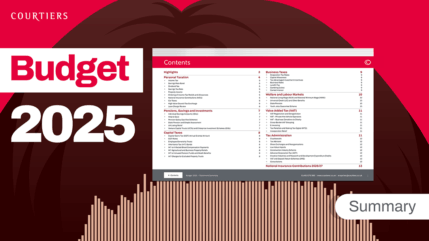HMRC recently lost what could prove to be a very significant court case. If there is no appeal, the ruling gives a glimmer of hope to the thousands of people who have suffered tax charges relating to their pensions in the years since 2006, and to the many thousands more who might do so in future.
The case in question revolves around a Mr Hymanson who, in 2011, was advised by his pension consultant to take out Fixed Protection 2012. The Government had just announced that, following years of gradual increases, it would be slashing the Lifetime Allowance from £1.8m to £1.5m in April 2012. The Lifetime Allowance, as a reminder, is the maximum tax-relieved sum anyone can accumulate in UK pensions over a lifetime. Any excess is taxed at a punitive 55%. Acknowledging that it was moving the goalposts, and that some people would have already built up funds in excess of £1.5m, the government allowed people to apply for Fixed Protection, meaning that they would be exempt from the new £1.5m cap. The only caveat was no further pension contributions could be made after April 2012.
Mr Hymanson had four pensions. His main company pension scheme received a lump sum contribution once a year from his business, along with regular rental payments relating to a commercial property that the pension held, which was rented back to Mr Hymanson’s business. In other words, Mr Hymanson’s business paid into his pension scheme in two distinct ways – through contributions and through rent. He also had two further pensions to which he paid monthly contributions via Standing Orders from his bank account. The fourth pension received no contributions. When Mr Hymanson received the original advice to apply for Fixed Protection, he was also told that he must not make any further pension contributions. The rental income could continue as it was deemed to be an investment return relating to the commercial property.
In 2015, when reviewing his affairs again, it became apparent that Mr Hymanson had failed to cancel the two Standing Orders to his private pensions. HMRC confirmed that, since he’d taken no steps to cancel the Standing Orders, his Fixed Protection was now invalid and that his pensions would be tested against the standard Lifetime Allowance. In April 2015 this stood at just £1.25m (it has subsequently been cut to £1.03m). Had his funds been worth close to the original cap of £1.8m, this decision would have resulted in an eye-watering tax charge of £302,500. As it happens, his additional tax liability was actually shaping up to be a still-painful £50,000.
Mr Hymanson was not prepared to accept HMRC’s decision and so took the case to the First-tier Tribunal at the end of 2018. HMRC argued again that it would have been more sympathetic had Mr Hymanson taken any steps to cancel the Standing Orders but, as it was, his only defence appeared to be a lack of understanding as to the necessity to cancel – in other words ignorance of the law. The judge disagreed and sided with Mr Hymanson, arguing that he had legitimate reason to be confused, given that the rental payments could continue whilst the contributions had to stop. Furthermore, the additional contributions, amounting to just £7,000, were grossly disproportionate to the additional tax liability that they would cause if his Fixed Protection 2012 was invalidated. The judge concluded that Mr Hymanson had a genuine belief that he was doing the right thing and that HMRC was in the wrong and should reverse its decision.
The reason this case is so significant is that it represents the first time that HMRC has been successfully challenged on its black or white stance regarding the Lifetime Allowance. Over 100,000 people have applied for this pension protection and a good number could well find themselves in a similar situation to Mr Hymanson.
Similarly, the principles of this case could just as easily be applied to tax charges resulting from the Tapered Annual Allowance, on which subject I wrote last month. I suspect many more people will fall foul of the Tapered Annual Allowance since it is far more obscure and far more complex. The opportunity for genuine mistakes is huge.
Ultimately the case seems to prove that, in some situations, ignorance is some defence. Whilst I have no doubt that HMRC will appeal (because it really can’t afford to lose this one) I sincerely hope the ruling stands. Given how complicated our pension and tax system has become, there needs to be a mechanism for unwinding genuine errors. If HMRC can’t offer that, it needs to make the system simpler.













